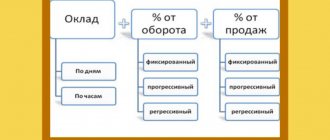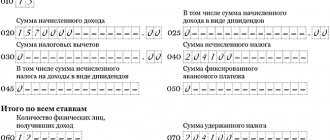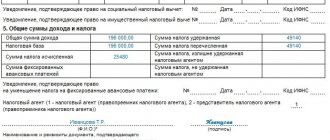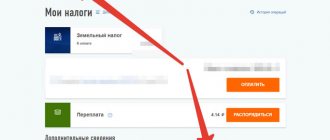Is personal income tax withheld from the premium?
There is a clearly regulated list containing cases when income tax is not deducted from the prize (clause 7 of Article 217 of the Tax Code of the Russian Federation), for example, for outstanding discoveries in the field of science, education, culture, etc. This list is approved by the Government of the Russian Federation.
In other cases, the question is whether the bonus is subject to personal income tax under clause 1 of Art. 210 of the Tax Code of the Russian Federation, it is not worth it, since almost any income of an individual is subject to taxation. The article “Are maternity workers subject to income tax (NDFL)?” will tell you whether personal income tax is withheld from maternity workers.
But there are payments, the grounds for which are listed in clause 28 of Art. 217 Tax Code of the Russian Federation. Moreover, if such a payment does not exceed 4,000 rubles, then it is not subject to personal income tax. These include bonuses: they must be strictly timed to coincide with some significant event and amount to no more than 4,000 rubles per year. per employee. In this case, a mandatory rule must be observed: a gift agreement is drawn up in writing (clause 2 of Article 574 of the Civil Code of the Russian Federation), then a payment under it in the amount of 4,000 rubles. for the year can be carried out as income not subject to personal income tax.
Find out whether financial assistance is subject to personal income tax in this article.
Is income tax taken on the bonus upon dismissal? Yes, it is taken in accordance with the general procedure - this is confirmed by the letter of the Ministry of Finance of Russia (dated September 29, 2014 No. 03-04-06/48497).
Find out how to reflect payments upon dismissal in 6-NDFL from this publication.
There are different types of awards
The Labor Code of the Russian Federation does not contain a separate concept of “bonus”, but this word is mentioned in Art. 129 of the Labor Code of the Russian Federation - among incentive payments and incentive payments. In Art. 135 of the Labor Code of the Russian Federation “Establishment of wages” talks about bonus systems as a remuneration system. Also, the “premium” is contained in Art. 191 of the Labor Code of the Russian Federation, “Incentives for Labor”: “Employers may pay bonuses to employees for conscientious performance of labor duties or achievement of certain labor indicators.”
Thus, a bonus to an employee can be defined as an incentive payment. She can:
- enter the wage system (Article 135 of the Labor Code of the Russian Federation);
- not be part of the wage system (Article 191 of the Labor Code of the Russian Federation) - indeed, incentives for work and remuneration for this work are two different things.
In order for bonuses to be considered payments included in the remuneration system, they must be provided for by relevant documents - collective agreements, agreements, local regulations (for example, Regulations on bonuses), an employment contract with the employee - or at least an employment contract agreement (Article 57 of the Labor Code of the Russian Federation).
Bonuses not included in this system ( incentive payments ) are usually timed to coincide with some date or event: the birthday of the employee, the company, February 23; the completion of a significant project, etc. Such bonuses must be documented by local regulations of the company - as a rule, by orders of the manager.
The procedure for paying personal income tax on bonuses in 2021: how the tax is calculated, taken and deducted
Let us show with an example what the process of calculating personal income tax from a premium and subsequent deduction of this tax from the payment amounts looks like.
Example
Employee Ivanov I.M. is a former employee of Romashka LLC, is retired and undergoes annual necessary treatment with the purchase of expensive medications. His son, Ivanov R.I., is a current employee of Romashka LLC, a leader in production.
At the end of the year, the general director of Romashka LLC authorized a cash payment in the amount of 10,000 rubles. Ivanov R.I., as well as reimbursement of expenses for the documents provided for the purchase of medicines in the amount of 3,500 rubles. The accountant was faced with the question: should personal income tax be withheld from the premium and how to do this rationally?
The accountant of Romashka LLC formalized it all like this: for 4,000 rubles. a New Year's gift was issued to R.I. Ivanov, for which a financial donation agreement was signed.
In the amount of 4,000 rubles. An agreement for financial assistance was drawn up.
In the amount of 3,500 rubles. funds were issued for reimbursement of the cost of medicines.
In the amount of 2,000 rubles. An order was drawn up for a bonus to R.I. Ivanov based on the results of the year.
It turns out that in this case it is necessary to withhold personal income tax from the premium, and only from it - from the amount of 2,000 rubles. The withholding amount will be 2000 × 13% = 260 rubles, and the payout will be 1,740 rubles.
All these payments were given in the order and documented with proper documents.
As a result, R.I. Ivanov received funds before the New Year in the amount of: 4,000 + 4,000 + 3,500 + 1,740 = 13,240 rubles.
But if the accountant issued 10,000 rubles. bonuses, then from this amount it would be necessary to withhold personal income tax on the bonus in the amount of 13% (10,000 × 13% = 1300), and Ivanov R.I. would receive in his hands: 8,700 + 3,500 = 12,200 rubles.
Bonuses and personal income tax: we optimize
But are bonuses always subject to personal income tax? Not always. There are exceptions to the general rule. In addition, there is a way to reward an employee without resorting to paying bonuses, but the result will be equivalent.
First, let's look at clause 7 of Art. 217 Tax Code of the Russian Federation. Here you can find a list of bonuses that are not subject to personal income tax. These are: awards for outstanding achievements in the field of science and technology, education, culture, literature and art, tourism, media, etc. Such awards are approved by the government, senior officials of the constituent entities of the Russian Federation, etc.
But still, the above bonuses are the exception rather than the rule.
Therefore, let’s turn to another type of incentives that are not subject to personal income tax - any organization can “afford” them. These are payments to employees provided for in clause 28 of Art. 217 Tax Code of the Russian Federation. For example, this paragraph states that the following are not subject to personal income tax:
- the value of gifts received by taxpayers from organizations or individual entrepreneurs;
- the amount of financial assistance provided by employers to their employees, as well as to their former employees who resigned due to retirement due to disability or age.
Thus, to optimize taxation, bonuses paid to employees can be replaced with financial assistance and gifts. If bonuses are directly subject to personal income tax on a general basis, then in the case of material assistance and gifts this does not happen.
Nuances:
- the amount of such premium should not exceed 4,000 rubles for the tax period, that is, one year;
- the bonus must be given not arbitrarily, but be “tied”, for example, to a significant date (company anniversary, March 8, etc.);
- With each employee who received a gift, a gift agreement must be concluded in writing in accordance with Art. 574 Civil Code of the Russian Federation.
Example: to celebrate the 10th anniversary of Vasilek LLC, forwarder Sokolov was given a gift - household appliances - worth 4,000 rubles. A donation agreement for household appliances was drawn up in simple written form. 4,000 rubles were issued as financial assistance to an employee. Neither gifts nor financial assistance are subject to personal income tax, so the company’s savings amounted (per person) to 1,040 rubles. What if the LLC employs several hundred people?
Payment of personal income tax on bonuses in 2021: what is the income code “personal income tax premium”
Let's now see how the accountant will reflect these payments according to income codes in the 2-NDFL certificate when personal income tax is withheld from the premium.
According to Appendix 1 to the order of the Federal Tax Service of Russia dated September 10, 2015 No. ММВ-7-11/ [email protected] :
- Gifts for the New Year will be indicated in the 2-NDFL certificate using code 2720 = 4,000.
- Financial assistance to the employee - according to code 2760 = 4,000.
- Reimbursement for the cost of medicines - according to code 2770 = 3,500.
These amounts will also be reflected in the 2-NDFL certificate in the Appendix to it according to deduction codes (Appendix 2 to order No. ММВ-7-11 / [email protected] ):
- Code 501 - gifts.
- Code 503 - financial assistance.
- Code 504 - medicines.
But for the payment of personal income tax on premiums in 2021, the income code depends on the situation in which it is paid. In our example, the bonus was paid at the end of the year, which means for production results, which corresponds to code 2000 (remuneration for fulfilling job duties).
If the bonus is related to other reasons, for example, paid in connection with a holiday, it will correspond to code 4800 (other income).
The material “List of income codes in the 2-NDFL certificate (2012, 4800, etc.)” will tell you about income and deduction codes in 2-NDFL.
However, you should always remember: for personal income tax on premiums, the payment procedure in 2021 stipulates that each issuance of such funds must be documented, be it an agreement, order, or other supporting documents, giving the right to interpret the payment as tax-exempt.
For information on how holiday bonuses affect income taxes, see the material “Holiday bonuses can reduce profits.”
Are production bonuses subject to personal income tax?
Absolutely all types of bonus payments are subject to personal income tax. The fact is that bonuses are classified as incentive payments, which are part of the salary (as is known, personal income tax is paid from it by virtue of paragraph 6 of paragraph 1 of Article 208 of the Tax Code of the Russian Federation).
It is important to distinguish bonuses for production results from non-production ones. Production bonuses are paid for any achievements in labor performance, for example, for fulfilling a plan. Non-production bonuses can be paid, for example, on an anniversary.
As a rule, production bonuses are paid based on the results of the month, quarter or year. The procedure for paying personal income tax on monthly premiums differs from the procedure for paying tax on quarterly and annual premiums. Below we will analyze both orders.
Salary bonus: when to pay personal income tax and deadlines for 2021
The procedure for transferring personal income tax from bonuses to the budget is determined by letter of the Ministry of Finance dated 04/04/2017 No. 03-04-07/19708. The deadline for paying income tax on premiums to the budget depends on the type of payment.
If the bonus is tied to wages, then such income is considered received on the last day of the month. The date of actual receipt of income in the form of other bonuses (not related to wages) is considered the day of payment of such income.
The deadlines for paying personal income tax on income in the form of bonuses in 2021 are such that the tax should be withheld on the day the money is paid, and paid no later than the next day. Until the release of this document, the Ministry of Finance recommended recognizing bonus payments on the same day as their issuance.
Find out how to reflect various types of bonuses in 6-NDFL from the publication “New explanations of the Federal Tax Service on bonuses: monthly, quarterly, one-time.”
There is liability for late payment of income tax - penalties for each day of delay and penalties in the amount of 20% of the unpaid amount.
About the extent of liability for non-payment of personal income tax, read the material “What liability is provided for non-payment of personal income tax?” .
Personal income tax payment date
When should “premium” personal income tax be paid? We have already found out that bonuses can not only be part of the remuneration system, but also be an incentive payment. The date of payment of personal income tax depends on the type of premium.
As a general rule, when receiving income in cash, the date the taxpayer actually receives the income is determined as the day the income is paid , incl. transfer of income to a bank account (clause 1, clause 1, article 223 of the Tax Code of the Russian Federation).
In turn, the date of actual receipt by the taxpayer of income in the form of wages is recognized as the last day of the month for which the taxpayer was accrued income for work duties performed in accordance with the employment agreement (contract) (clause 2 of Article 223 of the Tax Code of the Russian Federation).
Thus, the date of actual receipt of income in the form of bonuses, which are an integral part of wages , is recognized as the last day of the month for which this income was accrued to the taxpayer (see letter of the Department of Tax and Customs Policy of the Ministry of Finance of Russia dated April 4, 2021 No. 03-04 -07/19708).
And the date of actual receipt of income in the form of other bonuses not related to wages (that is, incentive payments) is considered the day of payment of the specified income to the taxpayer (including transfers to the taxpayer’s bank account.
Example 1: On July 12, Cardboard House LLC awarded manager Osinkin an incentive bonus in the amount of 10,000 rubles in connection with the successful completion of a long-term project to promote packaging. The prize was transferred to Osinkin's bank account.
On the same day, July 12, the LLC accountant withheld personal income tax in the amount of 1,300 rubles from the bonus. (Clause 4 of Article 226 of the Tax Code of the Russian Federation), and the next, July 13, he paid personal income tax in accordance with Clause 6 of Art. 226 Tax Code of the Russian Federation.
Example 2: On July 22, at the same Cardboard House LLC, senior specialist Berezkin was awarded a monthly bonus of 20,000 rubles, the payment of which was stipulated in the employment contract with Berezkin. On July 31, the last day of the month, the accountant withheld personal income tax from the premium amount in the amount of 2,600 rubles. and gave the prize to Berezkin. On August 1, personal income tax was paid.
Results
When looking for an answer to the question of whether a bonus is subject to personal income tax, the accountant needs to determine the nature of the incentive payments and their size. In some cases, the nature of such remuneration allows it to be exempt from this tax. If bonus payments are not included in the list defined by the Tax Code of the Russian Federation, or are more than the established framework, personal income tax on the bonus should be calculated and included in the budget. The transfer is made within a timeframe identical to the salary tax.
Sources:
- Tax Code of the Russian Federation
- Order of the Federal Tax Service of Russia dated September 10, 2015 N ММВ-7-11/ [email protected]
- Letter of the Federal Tax Service of Russia dated April 11, 2017 N BS-4-11/ [email protected]
You can find more complete information on the topic in ConsultantPlus. Free trial access to the system for 2 days.








